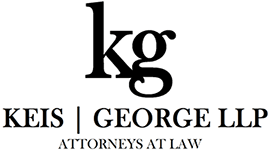One cornerstone of the admissibility of expert testimony is whether it is reliable. A challenge to the admissibility of expert testimony is generally known as a Daubert challenge, after a United States Supreme Court case that set forth factors for a court to consider in determining whether an expert’s testimony is reliable. See Daubert v. Merrell Dow Pharmaceuticals, Inc., 509 U.S. 579 (1993).
The Daubert standard is a test that courts use to determine whether expert testimony is admissible.
Federal Rule of Evidence 702 governs expert testimony in a federal case. It provides that a witness qualified by knowledge, skill, experience, training, or education may testify with his or her opinion if, in part, the testimony is “the product of reliable principles and methods,” and the expert “has reliably applied the principles and methods to the facts of the case.” Fed. R. Evid. 702(c)-(d). It also requires that the testimony will help the judge or jury to understand the evidence or the issues in the case.
Admissibility of expert testimony
A court considers the following factors to help determine whether expert testimony is reliable:
- Whether the theory or technique can be, and has been, tested;
- Whether the theory or technique has been subjected to peer review and publication;
- The known or potential rate of error;
- The existence and maintenance of standards controlling the technique’s operation; and
- Whether the theory or technique has been generally accepted within the relevant scientific community. Daubert, 509 U.S. at 593-594.
A party asserts the Daubert standard when it does not believe that the other party’s expert’s opinion is reliable.
There are some general issues with admissibility of expert testimony that a party can easily avoid. As an initial concern, an expert must in fact be qualified to give an opinion on the matter. For example, an electrical engineer probably does not have the knowledge, skill, experience, training, or education to determine that there was a defect in a certain building material. Another concern could be the reliability of an expert’s testimony based upon the type of testing that he or she utilizes. For example, an expert may perform a visual inspection or investigation instead of a type of scan or other testing. As long as the court determines that the visual inspection is reliable after an analysis of the Daubert factors, the existence of other possible testing methods is irrelevant to admissibility.
Avoid evidentiary issues at trial
Expert opinions are crucial to obtaining a favorable outcome in a case. A party should ensure that the expert’s opinions are reliable under Federal Rule of Evidence 702 and Daubert to avoid any evidentiary issues at trial. Be sure to contact one of our subrogation attorneys to discuss your file and how Daubert may apply.
